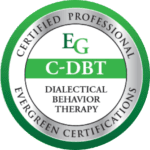10 Tips To Improve Mental Health
Hello and welcome, the purpose of this article is to inform and educate individuals who suffer from a variety of mental health issues. The first 4 tips inform the reader ways to handle trauma triggers. Such tips are: Grounding Techniques, Mindfulness, Emotional Support Animals, and Support Groups/Friends. The other 6 will offer tips to help with stress, depression, and anxiety such as: Exercise, Hot Bath/Shower, Hobbies, Positive Affirmations, Yoga, and Behavioral Chain Analysis. As the author, I encourage you to personalize this list and possibly add more tips toward the end. It is important to expand your knowledge, and be patient with yourself while implementing skills through practice. So lets get started with grounding techniques.

Grounding Techniques- When you are dealing with intense triggers that cause flashbacks. Grounding techniques are beneficial because they keep you placed in the here and now, and they slowly help you calm your mind while intense emotions are starting to surface. For example, when I ran group therapy for adults and adolescents. We would play a different category game. Such games with different categories were Cars (Make, Model, and Brand Names) Music Artist and Song, State Capital’s, Animals, etc. Group members would start with A and proceed to Z. During that time, patients were not thinking about intrusive thoughts. They were thinking about the next answer with the corresponding letter. Other grounding techniques focus on the 5 senses. 1) Touch: If you have a lawn with soft grass, try walking bare foot and feel the sensations of the grass touching the bottoms of your feet. 2) Smell: If you have incense or candles. I would recommend lining them up and smelling each one at a time. And deciding which one you prefer the best. And try describing the smells either by word or writing it down. 3) Seeing: Count how many pictures you have. And ask yourself these questions: Do you have selfies, how many? How many photos do you have of you and your best friend? Where is your TV remote? What color are your drapes, carpet, tile, and sheets? How many movies do you own? And of those movies how many could you divide into genres? Look in your refrigerator, how much junk food do you have? What vegetables/fruits do you have in your refrigerator? 4) Taste: Pick up that apple (or any fruits/vegetables) and bite into it. Tell me is it ripe? Is it juicy? If so are you enjoying the taste of the fruit juice? When you bite into the fruit how hard is it? Does the apple feel cold when you chew it? How much sugar is in the fruit, and what does it feel like against your teeth? These are just some examples that you could try and you could use candy too. Hearing: Music is a great tool for grounding techniques. If you have a favorite song or artist that you enjoy listening too, put it on and feel the rhythm, if nobody is around dance like there is no tomorrow, or lay back and put your feet up and listen to the lyrics. Ask yourself, what is the artist’s message? And why is it that you connect with the song?

Mindfulness- Is a form of meditation in which you are not focusing on the past. The past has already happened and there is no way to change it, unless you have a time machine…. If only….. Instead mindfulness has you focus on the moment through series of meditation exercises, the experiences can be very enjoyable. For example, there are exercises such as: nurturing a healthy attitude, improving motivation, avoiding distractions, calming your brain, seeing your loved ones for the first time, etc. There are many great books to help you with Mindfulness. If I was going to recommend one, I would suggest: “Mindfulness for Dummies.†Within its pages they lead you through step by step exercises that benefit the reader and the book also has an audio CD for guided meditation. Like any skill it takes practice, practice, and practice. You are not going to be great at it on your first try, so give yourself a reasonable amount of time to develop your skills. And remember also that you are going to have to be patient with yourself. Patience in my experience is the key to success.

Emotional Support Animals- Emotional support animals are a great way to alleviate mental health issues. People who suffer from Depression, Anxiety, PTSD, and other mental health issues. Report at various websites that emotional support animals make a positive impact. Service Animals provide friendship and love which motivates people to not isolate and reengage in life. There is a great website that has more information on emotional service dogs called “CertaPet.†They have a lot of information on laws and very informative on the process of making pets an emotional support animal. When you have time follow the link: https://www.certapet.com/

Support groups/Friends- Support groups are great because you are surrounded by people who you can actually share your struggles. Not every support group will be a good fit for you. What I would recommend is to do your research. Talk with actual members so you can get a vibe. Decide if the environment/people would be a right fit for you. There are plenty of support groups to find through Facebook and Meetup.com. The groups are very informative and some have weekly meetings that are face to face and other options would be online groups. Usually each support group will screen you before they accept you, I encourage you to answer the questions and share your purpose. Remember honesty is the foundation of relationship building.
Telling your close friends about your struggles can help you as well. There have been so many moments when I needed to vent and my best friend was always there to hear me out. Of course, he would challenge me but that his way of helping me move forward. Creating and bonding with friends provides you with a sense of community, and will give you a feeling that you are not alone. Guess what even if you don’t have many close friends, you are not alone. All you need to do is try and reach out. Take little steps to develop trust. Best friends do not appear overnight, they appear though sharing your personal life experience. Don’t get me wrong, there are boundaries and there is such a thing as oversharing. So if you are starting a friendship the important thing to do is let it happen. And to do that is taking little steps by opening your life. If they appear untrusting and have a tendency to gossip about your business. Then its not a right fit for you. Open yourself to possibility and new experiences.

Exercise– Every therapist out there will tell you that exercise is great because of so many reasons. It relieves stress, improves memory, helps people sleep better, and lifts mood. If you are dealing with depression, anxiety, and ADHD exercise is essential to cope with negative emotions. As a mental health practitioner, I recommend to exercise on a daily basis, because you will see a difference in overall mood. However, there are some people who have problems with mobility. Good news, you don’t have to run for a full hour, lift 50 pound weights, or take laps in the pool for 2 hours. Instead take that walk around the block for 10 minutes, take a dip in the indoor swimming pool and relax, take some Yoga classes, or do machine weights at the gym on the lowest setting. Staying at home and waiting for your thoughts to pass is not going to work. Get up, get out, and get tired.

Hot Bath/Shower- Ask yourself, “When you get up in the morning what is the first thing you want to do?†For me it would be to take a shower/bath. When I wake up in the morning, I notice that my mind is totally blank and I am not thinking about what I need to do in the morning. The reason is because I am focusing on the hot water and how the temperature is quite pleasant. Taking a long hot shower is very soothing for the mind and sometimes is a big stress reliever. What might enhance your sensation of relaxation is Epsom Salt Baths after a long day from work. Its raises levels of magnesium which has many health benefits such as: Joint Pain reduction, Relieves Osteoporosis, Stress-Related Illnesses, and Chronic Fatigue. Trust me put some Epsom Salt, with eucalyptus oils, soak for 20-30 minutes and your body will feel very relaxed. Now this is just a suggestion, I find that soaking in a hot tube for 10-15 minutes is a very relaxing experience. When I was working for a boss that didn’t appreciate my hard work. I would stress out, and my mind would wander to the possibility of being fired. While I was in the hot tub I remembered focusing on the hot water and the pleasant sensations. It felt that my mind went totally blank and I was able to take a break from anxiety.  After a long workout and soaking in the hot tub. I felt revitalized, like I could handle my situation if stress appeared. The point to remember is take some time to relax and take care of yourself, nobody is going to do it but you.

Hobbies- Hobbies are very important to keep your mind busy. Without hobbies your mind becomes bored and wanders to past memories. Keep your mind busy and active. If you go online there are huge hobby lists to choose, if you simply cannot decide then choose one and see if you like it or not. Remember do not stay stagnant, that is when our thoughts wander to the past which leads to regrets. Some examples of hobbies: Exercise, Video Games, Gardening, Photography, Painting, Reading, Writing Stories, Acting, Stain Glass Windowing, Playing with the Stock Market, Solving the Newspaper’s Daily Crossword Puzzle, Volunteering, Martial Arts, Crafts, Bee Keeping, Crafts, Beer Making, Landscaping, Learning a new language, Wood Work, and finally teaching your pet new tricks. Find hobbies that you find entertain and will keep your focus.

Positive Affirmations- Let me guess, “Seriously positive affirmations. How cliché can this guy be?†But in all honesty, they work. Let me tell you a true story, when I was getting my Bachelors at Texas Tech. I had doubts that I could do the work and get my degree. I remember many nights before a mid-term exam or a final I would spend countless hours studying at the library. Even though I knew the knowledge, I felt like I was becoming obsessed with passing. I started to quiz myself and got frustrated due to overthinking my answers and getting them wrong. Which of course developed doubts and I remember thinking to myself, “I don’t think I can do this?†But then I took a step back, and instead of being hard on myself I said this instead: “I can do this! I have spent 5 hours in the library, I am probably fried. I need to go home, watch bad TV and get some rest. I have worked hard all day and I deserve a rest. There is no point in pushing myself further. I did my best today and that is all I could ask for. I will do my best on the test. If I do bad, then I did my best and that is not the only test. Maybe I can make it up with extra credit.†And to make the long story short. I did well in my studies. Positive Affirmations did help me and they really do work. If you are going to try them I would suggest that you do not just say: I’m smart, I’m pretty, I’m loved, I’ll pass etc. Instead I suggest that you try a in depth format. For example: Situation (What is the situation, am I feeling nervous, anxious, and sad?)- “I have a big test in two weeks, and I have doubts I will pass. I feel nervous and anxious.†Positive Affirmation (What is the result I want to achieve?): “I can pass my test. I have every intention to pass my test in two weeks because I will work hard during those times. I can and want to work hard for a passing grade.†Evidence to Support My Positive Affirmation (What am I willing to do to achieve my goal? What is my plan?): “I plan to study at least 2-3 hours a day in order to help me pass. If its possible I will get a tutor. And maybe with my studying plus a tutor I will get the grade I want.†Another example: Situation (What is the situation, am I feeling nervous, anxious, and sad?)-“I was walking in the mall and all of a sudden I had a flashback, a stranger walked pass me and he was wearing the same cologne that my boyfriend wore while we got into a car wreck. My anxiety is so high and I hate it, I just want to feel normal again and not have to worry about the little things that might set me off.†Positive Affirmation (What is the result I want to achieve?)- “What I need to do right now is self-care. I am not going to focus on others and how they view me, right now I need to put myself as first priority. I need to use my grounding techniques, and if they don’t work I have other options. (Time passes) Earlier today I said, I want to feel normal again. With what I have been through, of course most people are going to react the way I did, right now I am going to therapy and getting what I need out of these sessions. I am not wasting my time, I am being proactive. I am normal because I am doing everything I can, I want  to move my life forward. Moving forward is difficult but I will be happy again, I deserve happiness.†Evidence to Support Positive Affirmation (What I am willing to do to achieve my goal? What is my plan?) “Like I said I am seeing a therapist right now, I will do whatever it takes to get past this. And if I work with him and feel like we’ve become stagnant in treatment. I will find another therapist; my goal is very important. I feel that I am willing to try anything. I will get through this!†If you are still not convinced I would encourage you to give positive affirmations a try, see how it affects you emotionally. You never know if something works until you try it, I encourage you to do positive affirmations on a daily basis.

Yoga- I am not going into much detail with Yoga. There are Yoga studios all over the cities and sometimes at your local gym. Some gym’s have free classes that you can join. While I myself have done 2 yoga classes, there are many sources online that discuss how yoga affects mental health and how it leads to increase positivity, stress reduction, and self-awareness with body. Yoga is good for joints and flexibility, plus if you are unable to do high intensive exercises. Yoga is considered to be low impact and will give you the positive feelings that exercise produces.
Behavioral Chain Analysis- Behavioral Chain Analysis is used to help people break down a problematic behavior. The exercise is focused on details in which behavior had spiraled out of control. The activity is focused on awareness in which people feel less vulnerable and more in control of their situation. The process is broken down into 5 different categories.

Vulnerability: 1) Physical Health Issues- “I broke my leg 3 weeks ago and I was in pain.†Tiredness- “I only got 4 hours of sleep last night.†Appetite- “I was so busy today I skipped breakfast and lunch.†Taxing Event- “I have spent all my money on bills for my home. And since I have no money, my credit card bills are going up from grocery shopping, and going out with friends.†Home Life Demands- “My dog is chewing on my new shoes I bought. And my partner is pressuring me to give them a key to my place.†Emotions- “ I feel so many emotions! I feel irritable, stressed out, angry, depressed, pressured, and tired!†Prompting Event: The event that causes a memory to trigger which causes problem behavior to manifest. An example would be, “Yesterday was the 10 year anniversary that me and my deceased wife got into a car accident. I was driving home when they started to play our song.†Links: At this point we are trying bring together the prompting event with the problematic behavior. In this phase of the behavioral chain, you need to ask yourself specific questions such as: “What was your reaction to: Prompting Event, Feelings, and Thoughts? And where do you feel the tension in the body?†For example, When I heard that song I started to think about what a great wife she was, and how I felt when I lost her. The pain I felt for the first three years, I felt so empty. I felt that I lost something precious and I thought that since I’m dating my new girlfriend, that I was cheating on my dead wife. I felt a lot of pressure in my chest, my heart was racing, and I was breathing fast.†Problem Behavior: The reaction that has caused numerous times of concern from family, friends and loved ones. Such problems would be frequent alcohol use to deal with stress, angry outbursts, and avoiding work, school, and previous social comments and engagements. Example, “When I came home from my drive where I heard the song. My partner was already inside my home. My partner let herself in and made dinner for the both of us. My partner wanted to surprise me and wanted to be supportive because she knows this day is hard for me. She walked over while trying to kiss me.  With no eye contact and acknowledgement, I walked straight to my room and locked the door. My partner wanted to know what was wrong and I told her I couldn’t tell while trying to hold back me tears, I was too upset and just wanted to be alone. When persisted I opened the door yelling and screaming. I told my partner to leave immediately. I never felt so bad in that moment.  She was just trying to be sweet and caring. When I have a crap day she is always willing to listen, all I want is to forget. When things get too hard I push her away. I do this when we get in a fight, or we are going to talk about something serious in our relationship. I’m not comfortable discussing feelings, it feels silly but it hard and I don’t really know how to console people. Angry and sad people make me very uncomfortable.†Consequences: This is the end result if the problem behavior continues. The consequences if things continue. “It would be fine if this only happened once in our 2 years of dating. But I have a problem sharing my feelings, and not just with her but with everyone. I don’t mean to come off uncaring and unkind. But I am uncomfortable handling an emotional situation. It scares me, and I avoid it as fast as I can. I think I need extra help, I don’t like to hurt my girlfriend or friends. They are not getting the real me. If I don’t work on this I will lose her, and I don’t want that at all. She is amazing, and so are my friends. I’m willing to try something new even though I am very scared.â€
Think of the 5 different categories as a road map. Without a map you were lead down to “No Man’s Land.†But here’s the good news, now that you have a map you can get back on the road to success. This is a great way to spot if you are doing self-care and discover what areas need to be improved. When you are doing the exercise, I always encourage my patients to think of solutions while we are discussing every little detail. Plus the best part of this exercise is knowledge.
If you have read this far, I would like to personally thank you for taking the time to read one of my works. I know the information can be lengthy but I want to encourage you to try some of the tips I have mentioned. My intention is to provide you with information that will be an asset to your success and personal development. Many thanks and take care 😊


